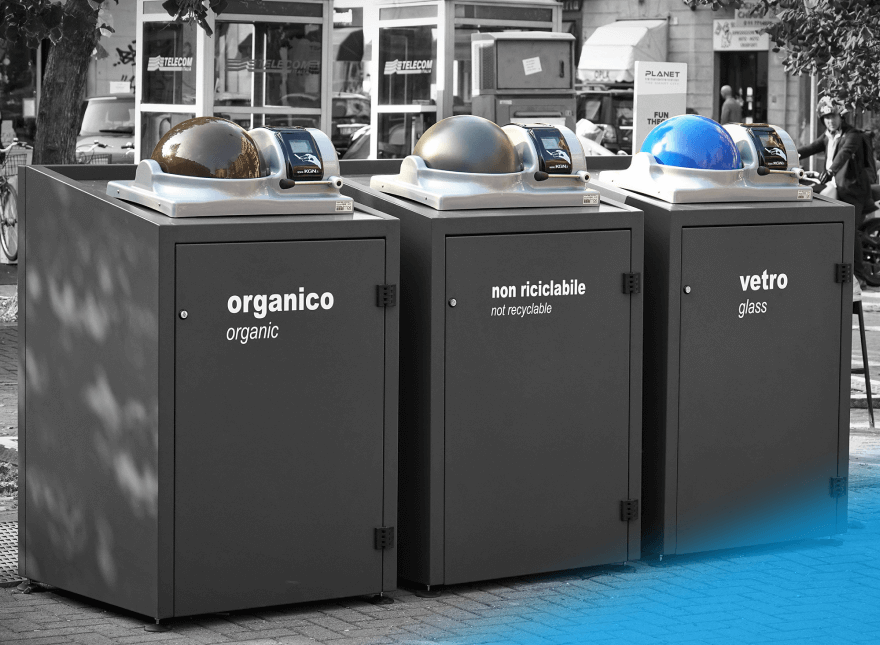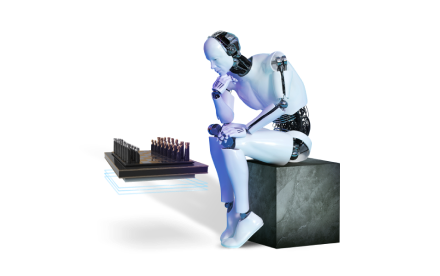Check out our latest blog article: From component to enterprise – modular robotics done right.
4 Ideas for Using AI in Smart Utilities

These are times of rapid change in the utility sector. The world is moving towards sustainability, so utilities need to become more efficient and incorporate alternative energy sources. This is quite a challenge because the infrastructure is aging. But AI for utilities can change the game. The technology enables small but smart updates without costing a fortune.
Startups building Internet of Things solutions with AI have ample opportunity to generate new revenue streams. In this article, we’ll talk about promising use cases and key drivers that make AI for smart utilities profitable for companies in the sector. We’ve also highlighted startups that have already been successful in terms of money and recognition. Your project could be next.
Trends in Smart Utilities Driving the Use of AI
The smart utilities market is growing fast. According to Statista, the market size will more than double from $13.9B in 2022 to $30.8B by 2025.

The use of artificial intelligence is one of the drivers bringing rapid change to the sector. It allows companies to predict demand for water, gas, and electricity, enabling them to optimize the supply. So what’s behind the wide expansion of AI for utilities? Here are some of the triggers:
Increasing demand for utilities. As the global population continues to grow, consumption of utilities like electricity, water, and gas rises. For example, the average global household electricity use will increase by 75% between 2021 and 2050. This forces companies to manage these resources wisely. The role of AI here is to predict demand patterns and help allocate resources in a smarter way.
Evolving regulations. Environmental regulations aren’t something that companies can ignore. New laws focus on sustainability. They force utility companies to create plans that help mitigate their environmental footprints. AI is here to help companies monitor their emissions, find areas to improve, and follow the new laws.
Shift towards renewables. Shifting towards renewables is a global trend. But renewables like solar and wind are not permanent, reliable energy sources because supply rapidly changes. This creates an intermittent power supply where utility companies can’t predict the output. AI is here to change that. Algorithms can forecast weather conditions and predict solar and wind power production. This can help utility businesses better manage renewables and balance electricity supply and demand in real time. As a result, these companies can rely less on conventional power sources.
Changing customer expectations. Customers now want to take control of their energy and water usage to help them pay less. AI makes it possible to tailor energy usage plans for various consumers depending on their behavior, weather patterns, and more. AI virtual assistants can help make these plans a reality. They can provide personalized help, address queries, and offer energy-saving tips.
Now, let’s see how startups can use these trends to conquer the market. Here are the most promising AI-powered IoT applications for utilities.
Idea 1. Energy Demand Forecasting
Predicting energy demand is never an easy task. It involves too many factors, including weather, market prices, and user behavior. It becomes even trickier if you add renewables to the grid. Renewable energy sources fully depend on weather conditions, which change rapidly.
AI algorithms applied to smart grids make all the difference. AI can forecast demand and match it with supply. It can also predict the availability of renewable energy and balance it with other energy sources. As a result, utility companies can be sure that relying on solar or wind energy doesn’t interrupt supply.

AI can also help optimize pricing. It’s possible to input reams of historical data on product sales and supplier costs, then estimate future scenarios. Utility companies can even predict how competitors may change their prices in response to their decisions.
With AI, it’s not just possible to understand customer behavior; you can also impact it. Some solutions can notify consumers about their peak periods and encourage them to adjust their usage. This leads to more efficient load distribution across the grid.
Real-life example. Wattie, an AI solution by a Netherlands-based startup, predicts customers’ monthly bills. It uses consumption patterns and weather conditions to do this. The solution consists of a piece of hardware that needs to be installed in an electricity distribution box and a mobile app. Users can see how much energy they use in the app and get personalized recommendations on how to cut down.
Idea 2. Water Quality Monitoring
Water utilities need to keep a close eye on many aspects of water supply: its quality, consumption patterns, and the state of equipment. This process isn’t always transparent and easy to control. But AI has proved its efficiency in simplifying water management by analyzing flow in real time.
Let’s take a look at a specific use case where AI ensures better water quality. Using trained models, AI is capable of recognizing harmful particles and bacteria that are invisible to the naked eye. AI-enabled sensors deployed in water systems can detect contaminants in real time. This allows water utility companies to rapidly respond to potential health risks.
Real-life example. US-based Clean Water AI built an IoT device that detects dangerous bacteria and harmful particles in water. The solution is equipped with high-definition cameras to detect contamination issues. It trains a deep learning neural network on the cloud, then deploys it at the edge. IoT devices like this can be installed across different water sources to monitor quality in real time.
Idea 3. Energy Prosuming
Today’s homeowners can have wind turbines in their backyards or solar panels on their roofs, enabling them to produce alternative energy. They can cover their power needs with this energy and sell the rest to the local grid. This is what it means to be an energy prosumer. And AI is a fundamental part of managing this process.
AI can help energy prosumers balance their supply and demand. A smart solution allows them to choose the optimal energy source depending on the weather conditions or consumption peaks. By interacting with smart meters, the solution can help balance the load and improve profits from generated energy. This might be because the prosumer is paying less for consumed energy or selling more surplus energy to the grid.
Real-life example. Belgian startup FlexThor created an AI platform for energy prosumers. The solution can connect various types of energy sources, including rooftop PVs, EV chargers, home batteries, and heat pumps. Its users can control all their energy assets using the mobile app. They can use renewable energy when it’s produced and share surplus energy by selling or trading it with other community members.
Idea 4. Waste Management
Mismanaged waste causes serious damage. Consider how plastic mismanagement pollutes seas, waterways, and soils. Dangerous practices, like dumping and burning, even cause deaths. Still, only 9% of plastic waste is recycled while the rest is landfilled, incinerated, or mismanaged. The technology that can make a significant impact on the management of plastic and other waste is AI.
AI in waste management starts with proactively tracking how people throw away their trash, including the different types, volumes, and patterns. Companies can collect this data and, with the help of smart algorithms, analyze it in real time to schedule pick-ups accordingly. It’s even possible to predict future trash production levels in some cases.
Let’s consider food waste. With machine learning algorithms, it’s easy to identify the weight and type of food thrown away. This data helps kitchens calculate their waste and reduce overproduction. For example, Winnow Solutions, a London-based startup, has already created an AI tool for this. It has helped kitchens reduce food waste by half. The system takes photos of food as it’s thrown away, and the machine trains itself to recognize the waste in the bin. Solutions like this help put less pressure on waste management companies.
AI can also improve recycling rates. The partnership of computer vision and machine learning can help identify and sort different types of material—plastic, glass, paper, metal, and organic waste. This can make the recycling process more accurate and fast.
Real-Life Example. CleanRobotics, a US-based startup, developed a smart recycling bin called TrashBot. It uses AI, computer vision, and robotics to detect and separate landfill waste from recyclables. When an item enters the bin, the system captures an image of it and classifies it by waste type. Then, it diverts it to the target bin—recyclable, organic, or landfill. The waste data is stored in the cloud, allowing TrashBot to learn from it and grow smarter over time.
Startups in Smart Utilities that Have Received Funds and Awards
AI solutions for utilities is a promising new frontier of technology for companies operating in this space. They are getting significant investment, solid chances to partner with utility giants, and industry recognition. Here’s proof.
Investors pour money into smart utility companies. Smart grid startups, in particular, received $4.1B in the last two years. There are solid investments being made in water management, too. Consider Gradient, the water tech startup that received $225M this year and has become a unicorn. They develop technology to reduce water usage and build wastewater treatment systems for industries like pharmaceuticals and food and beverages. AI helps treat waste streams to return as much fresh water as possible.
Utility giants are also investing in AI technologies. NextEra Energy, one of the largest electric utility holding companies, invested in machine-learning-based wind projects in the US. The projects will help them avoid any power fluctuations in nearby areas.
Market players are also consolidating to foster innovation. Mature utility companies are partnering with or acquiring firms with AI capabilities. One clear example is RoadRunner Recycling, a leader in sustainable waste management. In 2022, they acquired Compology to add computer vision technology to their solutions. Compology has created software for dumpster monitoring. This software connects to CV cameras and shows how full dumpsters are. It can also indicate what’s inside.
Smart utility products have also received awards at the Consumer Electronics Show (CES). Every year, CES honors tech innovators creating solutions for smart cities that help manage water, waste, and energy. Here are some of the 2023 honorees:
- Clean Water Pathfinder, an intelligent robot from ACWA Robotics. It travels inside water pipes and documents their conditions, revealing their thickness and corrosion levels.
- Wayble, a waste management platform from SK Ecoplant. This is an AI platform that digitally tracks and manages the entire waste lifecycle.
- NELOW Ver 2, a leak detection system from WI.Plat. The solution detects leaks in water pipes with the help of an acoustic sensor, water pressure data, and AI software.
- INTEGRICT Industrial CEMS, a smart energy platform from Hyundai Electric & Energy Systems. It collects and manages energy consumption data generated from factories in industrial complexes.
Your solution for smart utilities could be added to this list. Meanwhile, if you’re a newbie right now who is trying to find out how to boost your early-stage startup, the Softeq Venture Studio is here to help. We’ll assist you with business skills, tech expertise, and much-needed cash. Softeq is often a company’s first investor.
Bottom Line
The utilities sector is undergoing rapid transformation, and AI is here to help the companies in this space adapt to the changing landscape. Startups are a part of this transformative wave. Many of them have already found success leveraging AI for utilities. If you want to tap into profitable opportunities in IoT applications with AI capabilities, Softeq is here to help.
More articles on the topic






